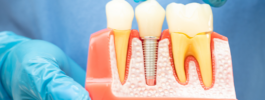Did you know that nose breathing offers significant health benefits over mouth breathing? While many people are unaware, the way you breathe can impact everything from oral health to sleep quality. Mouth breathing can cause dry mouth, snoring, and even worsen conditions like sleep apnea. On the other hand, nasal breathing filters and humidifies the air you inhale, promoting better oxygenation and respiratory health. In this blog post, we’ll explore the numerous benefits of nose breathing, why it’s crucial for your health, and how making the switch can improve your overall well-being.
What Happens When You Breathe Through Your Mouth?
Mouth breathing may seem like a natural alternative when you’re struggling to breathe, but it has significant downsides. When you breathe through your mouth, especially during sleep or physical activity, it can negatively affect your oral health, respiratory health, and overall sleep quality. It bypasses the nose’s filtration system, leaving your body more exposed to allergens and pollutants. Additionally, it disrupts the airflow necessary for restful sleep, often causing snoring or even more serious issues like sleep apnea. Understanding the consequences of mouth breathing is the first step toward improving your health through nasal breathing.
Impact on Oral Health
Breathing through your mouth, especially during sleep, leads to a dry mouth, reducing the production of saliva, which plays a crucial role in protecting your teeth and gums. Without enough saliva, your mouth becomes more susceptible to gum disease, tooth decay, and persistent bad breath. Over time, this habit can even result in malocclusion, or improper dental alignment, as it alters the positioning of your teeth. Additionally, mouth breathing encourages a buildup of bacteria and plaque, worsening your oral hygiene. To protect your oral health, switching to nasal breathing can make all the difference.
Effects on Respiratory Health
Mouth breathing bypasses the nose’s natural defense mechanisms, such as its ability to filter out bacteria, humidify the air, and regulate airflow. As a result, your respiratory system becomes exposed to greater amounts of allergens, dust, and pollutants, which can lead to allergies, sinusitis, and exacerbate conditions like asthma. Additionally, mouth breathing disrupts the airflow into your lungs, often resulting in shallow breathing, which reduces the body’s ability to absorb enough oxygen. Nasal breathing, on the other hand, promotes optimal respiratory health, ensuring cleaner, warmer, and more humidified air reaches your lungs.
Key Benefits of Nose Breathing
Nose breathing isn’t just a better habit—it’s a game changer for your overall health. From improved respiratory health to better sleep quality, switching to nasal breathing can enhance many aspects of your life. The nose plays a critical role in filtering, humidifying, and regulating the airflow, ensuring that the air reaching your lungs is cleaner and safer. By focusing on nose breathing, you’ll improve oxygenation, support oral health, and experience better mental clarity. Let’s explore the most impactful health benefits of breathing through your nose and why it should become your go-to habit.
Improved Oxygenation and Brain Function
Nose breathing allows for more controlled airflow, ensuring that the air entering your lungs is regulated for optimal oxygenation. This improves oxygen levels in the body, leading to better circulation and, consequently, enhanced brain function. With more oxygen circulating through your bloodstream, you’ll experience improved mental clarity, increased focus, and sharper cognitive abilities. Nasal breathing also stimulates the diaphragm, which supports deeper, fuller breaths, maximizing the oxygen intake during physical activity and daily tasks. Ultimately, regular nose breathing helps maintain a healthier body and mind, keeping you at your best.
Better Sleep and Reduced Snoring
Switching to nasal breathing can have a profound effect on your sleep quality. When you breathe through your nose, the airways remain open and stable, preventing the collapse of the throat muscles, which is a major cause of snoring. By encouraging a smoother airflow, nasal breathing reduces the vibrations in the throat and keeps your sleep cycle uninterrupted. This simple change can also alleviate symptoms of sleep apnea by reducing the occurrence of breathing pauses during the night. Nasal breathing promotes deeper, more restorative sleep, allowing you to wake up feeling refreshed and rejuvenated.
In conclusion, adopting nose breathing over mouth breathing can significantly improve your oral health, sleep quality, and respiratory function. By ensuring cleaner, more humidified air reaches your lungs, nasal breathing enhances oxygenation, boosts brain function, and even reduces snoring. It’s clear that making the switch can promote better overall health and well-being. If you’re struggling with mouth breathing and its negative effects, we’re here to help! At Bunny Teeth Dental Clinic, Chennai we specialize in treating mouth breathing with myofunctional therapy and other tailored solutions. Contact us today to learn how we can improve your breathing and oral health!






